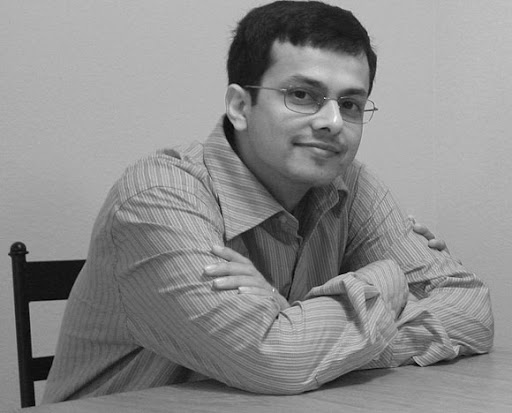In early 1922, India was in the middle of the Non-Cooperation movement against the British administration. The goal -- human dignity and self governance. The path -- non-violent insistence on the truth. And then it happened on February 4th 1922. Police firing killed three protesters and injured others in a crowd of about two thousand in the town of Chauri Chaura. The furious mob, in retaliation, attacked the policemen who tried to hide inside the police station. The police station was set ablaze; twenty-three policemen were burnt alive. Afterwards, nineteen people were hanged for the incident, and over a hundred received various jail terms varying from two years to life.
Gandhi's response was to halt the movement completely. He also went on a five-day fast as a gesture of repentance for what he believed was his complicity in the killings. Most of the contemporary Indian leaders deprecated his action - describing it variously as mistaken, cowardly, madness or betrayal. Historians tend to agree that the stray incident of violence, although regrettable, did not undermine a nation's plea for political freedom.
The incident defines Gandhi. For him, non-violence was not a conscious choice, but an instinct. So too was his refusal to impose on others what he did not practise himself. Come to think of it, non-violence is just one component of the expansive "practise, then preach" philosophy. This fundamental principle is known by many names: the Ethic of Reciprocity, the Golden Rule, or the Principle of Tolerance -- and it forms the basis of the very concept of human rights. The principle, however, is incredibly hard to follow to the extent that Gandhi did. And in a political leader with a hundred million eager followers, it is unthinkable.
But does an incident of violence undermine a nation's plea for political freedom? Absolutely not. However, political freedom is insignificant when compared with freedom of the mind. What does political freedom mean? The power to choose our leaders, to make our own laws perhaps. Political freedom is a means to an end, the end being a state where people may live without fear. To reach that state, it is necessary that all individuals practise mutual respect and tolerance. Achieving freedom from fear is far more difficult and also much more important than any regime change. It was probably clear to Gandhi that the British would leave sooner or later, and then people would celebrate their freedom, but their lives would not change overnight.
Political freedom for a nation is like allocating funds to make something gigantic happen. Without the right mindset, things soon sour up, a few people have a good time with the money, and in the end fingers are pointed and a few scapegoats are punished. India, a nation with a population larger than that of the North and South Americas put together, and with immense diversity in languages and cultures, would have very little chance of surviving as a nation in the absence of mutual respect and tolerance. And non-violence is a stepping stone for tolerance.
As far as usage goes, the term 'diversity' is viewed quite positively, but for all practical purposes, it is a bomb waiting to explode. The notion of identity is very important to human beings. We all have many identities: I am an Indian, residing in the USA, male, Hindu, Brahmin (priest by caste), married, straight, an electrical engineer, with a PhD, employed, the list can go on. Most people attach the most importance to one or a few identities, commonly based on nationality, religion, race, ideology or sexuality. We identify with the grievances of people who share our chosen identities, and we blame all who share the identity of individuals responsible for causing the grief. The fact that all individuals are responsible for only their own actions, and that we share common identities as human and living beings, matter no more. Our mind loses its sense of justice, and replaces it with a senseless rage. It is a state where actions are not born out of reason, rather reasons are made slaves to justify unconscionable actions.
Gandhi realized the importance of tolerance when others were fascinated with self-governance। In a way, he was years ahead of his time, indeed years ahead of today. As Albert Einstein said: "Generations to come will scarce believe that such a one as this walked the earth in flesh and blood." Who knows when, if ever, our species will evolve to a point where all of us value kindness the way Gandhi did.
Sunday, December 09, 2007
Subscribe to:
Posts (Atom)
